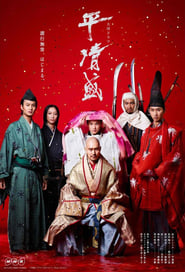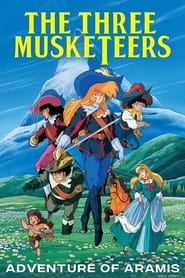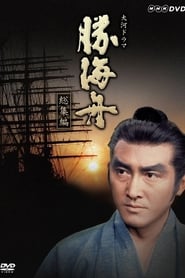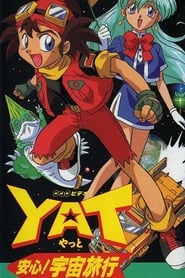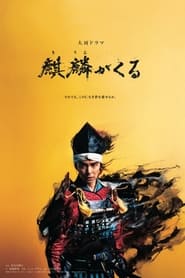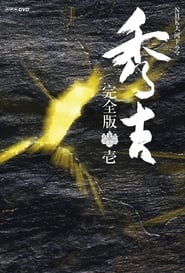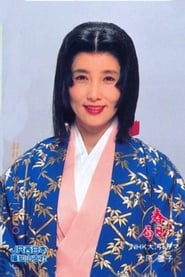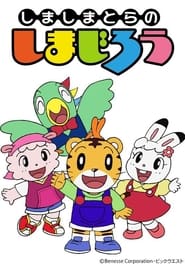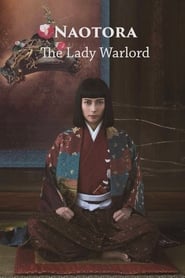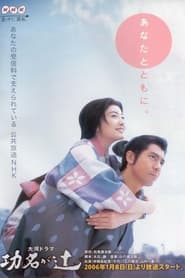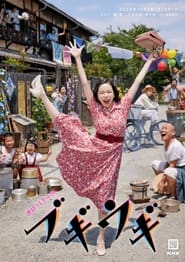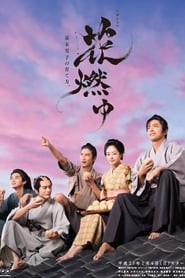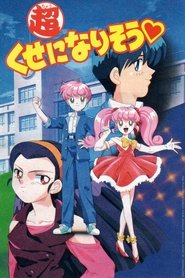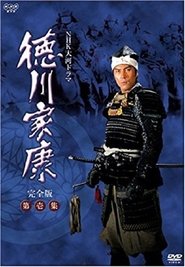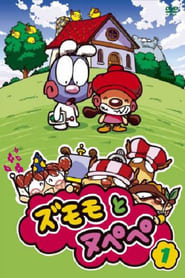Nhk TV Series - Page 5
-
The 13 Lords of the Shogun
2022
star 8.3Following the ascension to power of Taira no Kiyomori, the Minamoto clan is exiled. Minamoto no Yoritomo meets Masako, the sister of Hōjō Yoshitoki and later marries her. Following this marriage, the gears of Yoshitoki's destiny begin to turn. -
Taira no Kiyomori
2012
star 8Villain or hero, Taira no Kiyomori changed Japanese history forever 900 years ago. Without ever knowing his real father, Kiyomori was raised as a samurai. Together with his stepfather, he wiped out piracy along Japan's western coast, becoming a full-fledged warrior samurai. In an age when samurai were looked down on as members of the lower class, Kiyomori was skillful at winning the hearts and minds of the people. By rounding up surrendered pirates and achieving other successes, Kiyomori eventually became the de facto ruler of Japan. -
The Three Musketeers
1987
star 7.2D'artagnan leaves Gascone and his grandparents to go to Paris to be a musketeer like his father was... -
Katsu Kaishu
1974
Katsu Kaishu
1974
Katsu Kaishū deals with end of the Edo period. Based on Kan Shimozawa's novels "Katsu Kaishū " -
Yat, The Space Patrol
1996
In the year 5808, humanity has taken gigantic steps in the vast reaches of space. The innovation of the dimensional tunnel made intergalactic travel possible between any planet in the galaxy. Focused on the planet Earth, an adolescent teenager named Goro Hoshiwatari approaches the feeble travel agency known as "Yamamoto Anshin Travel " to find the whereabouts of his father who disappeared fifteen years ago. Upon arriving, Goro meets the YAT staff and the president's daughter Katsura Tenjouin, whom he falls in love with. After getting inadvertently involved in an accident, Goro finds himself drafted into the agency to compensate for the damage. While Goro tags along to still search for his father, his troubles turbulence from the various cash-making attempts along the tours to enka-singing space pirates and escaping the romance attempts of the Cosmolord Agency's heiress. -
Awaiting Kirin
2020
star 8.4After the Onin War, the world is plunged into chaos. Amid this situation, heroes of the warring states begin to emerge in an attempt to unify the country and rule in these turbulent times. In the mid-1540s, there is a young wandering samurai in Mino which is strategically located between the East and West. His name is Akechi Mitsuhide. At this time, there is plenty of internal strife within the Toki clan which rules Mino. Surrounded by the Oda of Owari, the Imagawa of Suruga and the Asakura of Echizen, Mino has constantly faced the risk of invasion. Mitsuhide is pulled into battle and destroys the enemy. His bravery as well as stratagem catches the attention of Saito Toshimasa, the chief retainer of the Toki clan, and he is singled out. This man who is also known as Saito Dosan will go on to takeover the Toki and make Mino his own. -
Guin Saga
2009
star 7"The seal will be broken after many years". In the land of Nospherus, four heroes embark on a patch of destiny that will weave a new legend. The story follows Guin, a powerful swordsman with a leopard head, the adolescent royal twins Remus and Rinda, and the young and ambitious mercenary named Istvan. -
Hideyoshi
1996
star 9.5A dramatized biography of the second of Japan's three legendary leaders. Rising from obscurity, Hideyoshi served under the command of Oda Nobunaga. With an extraordinary combination of intelligence, bravery and military skill, Hideyoshi rose to near-absolute power and greatly expanded upon Nobunaga's unification of Japan's warlords. This series also focused on Hideyoshi's personal life, particularly his relationships with his mother and his wife, and the pair's rivalry for influence over him. -
Three Sisters
1967
Three Sisters
1967
The Story is about three daughters of a "Hatamoto" during the end of the Edo period and the Meiji Restoration. -
Kasuga the Court Lady
1989
This is the story about the a very powerful Lady Kasuga who established Ooku the inner palace. -
Shimajiro: A Wonderful Adventure
2012
Curious young boy Shimajiro learns the importance of family and friendship through his many adventures with his pals Mimi-Lynne, Flappie and Nikki. -
Naotora: The Lady Warlord
2017
star 8.3Naotora Ii is a woman given a male name, who succeeded as the head of the Ii family during the Warring States period when her father passed away. With her wisdom, courage and affection for loved ones, Naotora lived through turbulent times and paved the way for the future of her clan. -
Yae's Sakura
2013
star 7.9Yae no Sakura is a 2013 Japanese television series. It is the 52nd NHK taiga drama. The story focuses on Niijima Yae, who is portrayed by Haruka Ayase. -
Love and Glory
2006
star 7Kazutoyo lived during the end of the Sengoku period (1546-1605). He was the first feudal lord of the fief of Tosa on the island of Shikoku. He served Nobunaga Oda, Hideyoshi Toyotomi and Tokugawa Ieyasu. Chiyo (1557-1617) was his wife, and was known in history for her dedication and devotion to her husband (like Matsu was to Toshiie in Toshiie to Matsu). She is the daughter of a samurai who served the feudal lord Asai. -
Boogie Woogie
2023
Boogie Woogie
2023
Sets in the 1910s, this is the story of Hanada Suzuko, a young girl who grew up in a family that owned a bathhouse in downtown Osaka. From a young age, Suzuko loved to sing and dance, and joined the Umemaru Girls Opera Company (USK) in Dotonbori. Suzuko continued to show her talent for singing and eventually became a star of the postwar era. -
Burning Flower
2015
star 7.7Fumi becomes Genzui Kusaka’s wife. During the turbulent times of the closing days for the Tokugawa shogunate, she lives positively and tries to keep up Shoin Yoshida's will. Shoin Yoshida is her older brother and intellectual. -
I'll Make a Habit of it
1994
star 8Idol Shiratori Nagisa misses combat and martial arts, so she dresses up as a schoolboy and enrolls in the most roughed-up school she can find. She develops a crush on one guy, who...thinks she's a boy... But it works out. Now she has to juggle life as an Idol and a schoolboy. All the while, wannabe Idols try to steal Nagisa's spotlight. And in Nagisa's wild world, there's nothing that can't happen. -
ズモモとヌペペ
2012
ズモモとヌペペ
2012
-
Kunitori Monogatari
1973
Kunitori Monogatari
1973
Set in Japan several centuries back. It depicts the struggles of three historical warriors, Dosan Saito, Nobunaga Oda and Mitsuhide Akechi.

